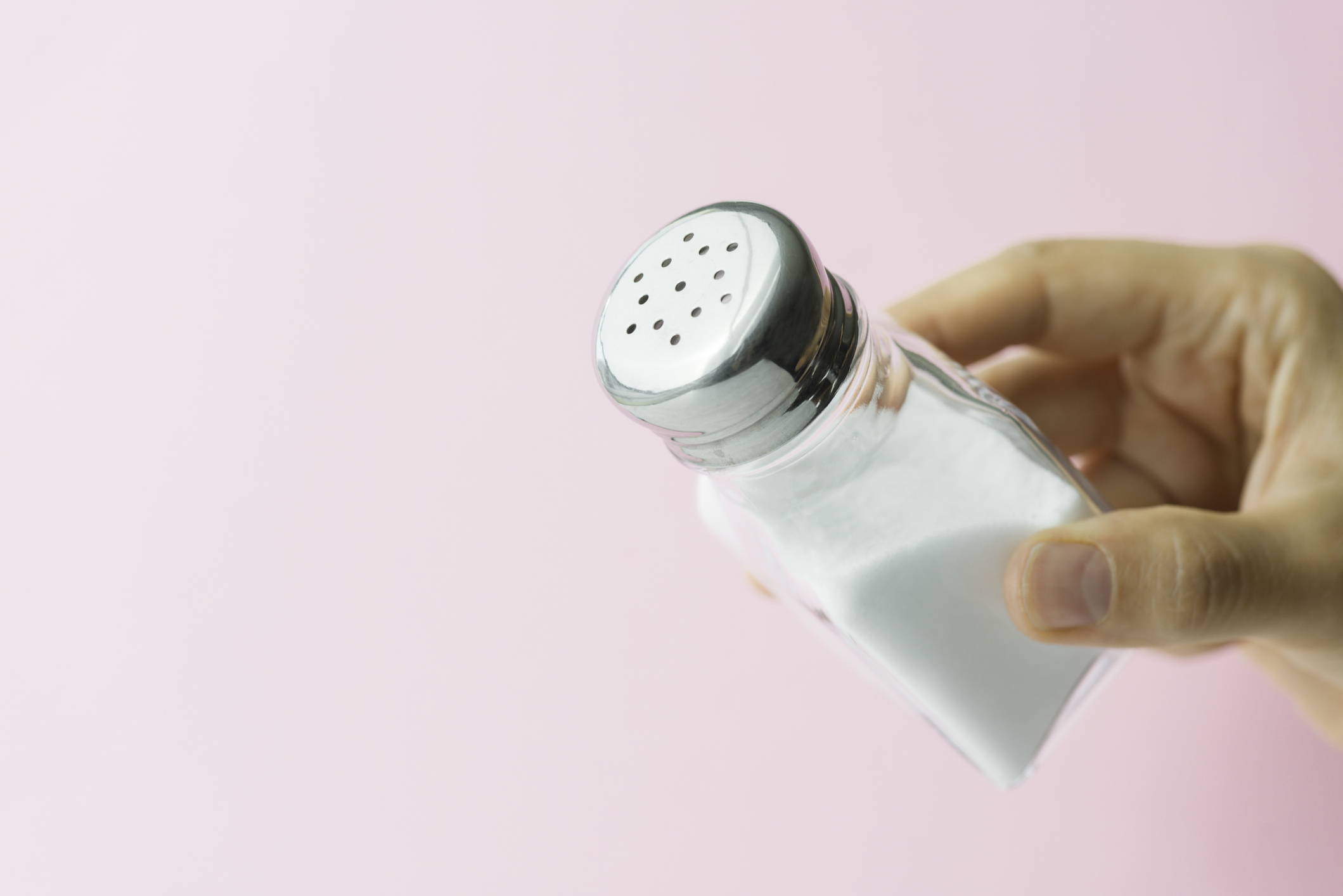Get Easy Health Digest™ in your inbox and don’t miss a thing when you subscribe today. Plus, get the free bonus report, Mother Nature’s Tips, Tricks and Remedies for Cholesterol, Blood Pressure & Blood Sugar as my way of saying welcome to the community!
From kidney disease to heart disease: How much salt matters

For a lot of years now, statistics have shown that heart disease is the #1 killer in the United States. More than half a million American adults suffer a fatal heart attack each year.
In contrast, about 250,000 people a year die of chronic kidney disease (CKD).
But here’s the thing…
Cardiovascular disease (CVD) is the leading cause of death among people with CKD. And CKD can raise the risk of cardiovascular disease by two to fifty times.
CVD and CKD often occur together and share many of the same risk factors — including older age, diabetes and high blood pressure.
So it’s no surprise that the salt shaker on your kitchen table is one of your worst enemies if you want to prevent both CKD and CVD.
What your kidneys do for you
Every day, your two kidneys filter about 150 quarts of blood, producing about two quarts of urine full of wastes and excess fluid.
Your kidneys do other jobs as well:
- keep sodium, potassium and phosphate levels healthy
- regulate blood pressure
- make red blood cells
- help strengthen bones
Study links salting food to more kidney disease
That first bullet point above is a big clue. Without healthy functioning kidneys, sodium builds up in the body.
And previous research has shown that high salt intake can increase the amount of protein in the urine — a major risk factor for kidney function decline.
Most of us have long been aware that salt can have a major impact on our health. But adding a dash here and there, well, where is the harm in that?
That’s exactly what researchers at Tulane and Harvard Universities partnered together to look into.
Accessing 465,288 subjects from the UK Biobank, a large, long-term study in the UK that aims to investigate the roles genes and environmental factors play in disease, subjects self-reported how much salt they used.
According to the researchers, the association was clear: Higher self-reported frequency of adding salt to foods was significantly associated with a higher CKD risk.
Compared with those who reported “never or rarely” adding salt to food — those who reported “sometimes” adding salt to food, those who reported “usually” adding salt to food and those who reported always adding salt to food had an increased risk of CKD.
“In conclusion, our study indicates that the higher self-reported frequency of adding salt to foods is significantly associated with a higher risk of CKD. These findings support the reduction of adding salt to foods as a potential intervention strategy for CKD prevention.”
Lay off the salt and eat like this
A large majority of adults with chronic kidney disease also have metabolic syndrome.
And metabolic syndrome is a jumping board to heart trouble. That means if blood pressure is creeping along with weight, blood sugar levels and triglycerides, heed the wake-up call.
The heart-healthy DASH diet that’s often recommended for people with chronic kidney disease can help tremendously with these metabolic syndrome factors. DASH stands for Dietary Approaches to Stop Hypertension, and its emphasis on low salt intake and eating foods containing potassium, calcium and magnesium has been known to lower blood pressure in as little as 14 days.
The DASH diet promotes low-fat meat and diary, nuts and seeds and 4 to 5 daily servings each of leafy green vegetables and fruit.
Vegetables and fruits are alkaline foods that can help lower dietary acid load. The kidneys normally help to regulate blood pH, but if kidney health declines and can no longer carry on that function as well, then some experts believe a diet that reduces acid load could improve outcomes in CKD.
Avoid processed and ultra-processed food. It’s a sure bet any of those foods will have sodium amounts far and above what would be considered good for anyone.
Editor’s note: Did you know that when you take your body from acid to alkaline you can boost your energy, lose weight, soothe digestion, avoid illness and achieve wellness? Click here to discover The Alkaline Secret to Ultimate Vitality and revive your life today!
Sources:
Self-reported frequency of adding salt to food and risk of incident chronic kidney disease — Eureka Alert
Self-Reported Frequency of Adding Salt to Food and Risk of Incident Chronic Kidney Disease — JAMA
Chronic Kidney Disease Basics — CDC
Alkaline Diets and Kidney Disease — American Society for Nutrition














